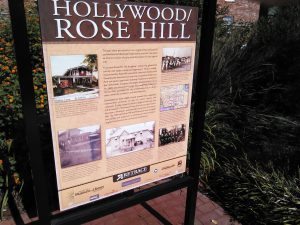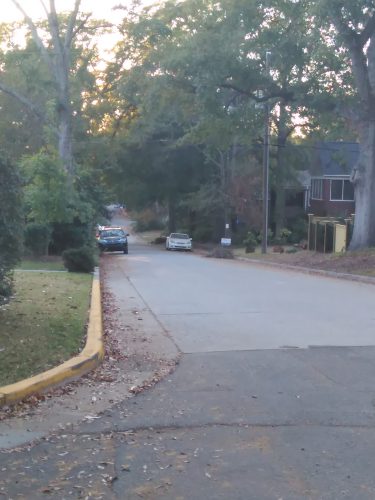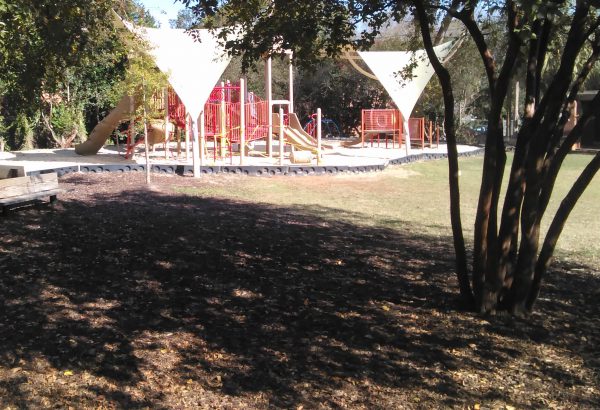USC off-campus life takes toll on local residents
by Reporting Students • November 18, 2016 • All Stories • 0 Comments
 Off-campus living is great for USC upperclass students eager to leave residence hall life behind. But some local residents are fed up with the wilder side of college life.
Off-campus living is great for USC upperclass students eager to leave residence hall life behind. But some local residents are fed up with the wilder side of college life.
By: Parks Beson
November 8, 2016
Moving beyond the restricted walls of residence hall life is a rite of passage for many University of South Carolina upperclass men and women. But some student relocations to local Columbia neighborhoods have spawned tensions with the new neighbors.
“It has a lot to do with the fraternities and initiations,” said Kathryn Luchok, former president of the Hollywood-Rose Hill Neighborhood Association. “Some fraternities have off-campus ‘outposts’ in the area, one specifically on South Saluda, where the campus restrictions are lessened and they’ll come and have big blowout parties.”
Luchok remembers the Halloween party that occurred last year at the same “outpost.”
“The fraternity in the ‘outpost’ threw a big all-day, almost all-night Halloween party, and that was on the night of the neighborhood Halloween party and the children’s’ trick-or-treating. To say the least, it was a real mess. We have had numerous neighbors give noise complaints to the police.”
Randy Covington, a resident of the Hollywood-Rosewood area, recalls a goat wandering the streets last semester — an incident that he says makes off-campus living, well, off-campus living.
“Last year some college students thought the neighborhood goat would be a good way out of having to not mow the lawn,” Covington said. “One day the goat got loose and much to the amusement of the residents, the students spent the entire afternoon around the streets. That is not something you see or hear about every day.”
Within the first week of the 2016-17 academic year, a USC student woke up naked on the porch of Suzanne Keenan, a Hollywood/Rose-Hill resident. Keenan clothed the young woman and sent her on her way with no comment, according to a report in The State.
No names were exchanged between the two, but Keenan acknowledged this has become more than an annoyance for some of the local residents. The Hollywood/Rose Hill neighborhood is bounded by Rosewood Drive and South Marion, Heyward and South Harden Streets, so it is within walking distance of the university.
As of 2010, the neighborhood has more than 1,300 residents. Capt. Eric Grabski of the University of South Carolina Police Department says that USCPD has been involved in investigating some of the incidents, but the university resources department has resolved most of the incidents.
“I would say that there is an average of a dozen times a semester that we are involved in off-campus incidents — not as much as you think,” said Grabski. “However, there are a lot more incidents that we know of, but they are small enough to be taken care of by the off-campus student services. The student services center is the main entity for a resident to lodge a complaint.”
Complaints from local residents seem to increase at the beginning of the semesters. Grabski says that the increase is, quite frankly, because of the uptick in student population during the two semesters compared to the summer and winter breaks, when there is little to no activity.
Covington says that while some residents of Hollywood/Rose Hill are concerned about the neighborhood living conditions, the majority of the area has a good relationship with the students. It is what makes these areas so unique and fun.
Covington says that there is an incident or two that has gotten out of hand, but in all of his years of living in the area, Covington has never felt that he needed to move to a different area of Columbia.
“While we do not applaud naked co-eds on the front porch of residents and we do not seek goats running around the neighborhood. We accept it as the price that you have to pay for living in a community with so many other benefits.”
we do not seek goats running around the neighborhood. We accept it as the price that you have to pay for living in a community with so many other benefits.”
It does help that he is a professor at the University of South Carolina.
“It is a diverse neighborhood with not only college students, but professors of the university, either current or retired,” Covington said. “It is a university neighborhood, and the students, for the most part, respect that.”
Luchok says that the neighborhood and USCPD are finding solutions to keep these actions at a suitable level.
“One of the solutions that we have come up with is the creation of the point system,” Luchok said. “Points will be added to your renting license for every incident that occurs in your house and after a certain number of points, your license to rent will be revoked.”
Luchok also said that she thinks one of the reasons that these incidents are occurring is because of the level of freedom that these students are experiencing for the first time. She said some of the students do not know or even get to meet their landlords, and so they do not know the rules and regulations for the community.
“One of the main complaints that we get from the community, as far as the noise complaints, is a student who does not take care of the outside of the house, or the lawns,” Luchok said. “No one wants to drive around the neighborhood and see couches out in the lawn or towels that are used as curtains.”
Luchok seeks to better the communication between the students and their landlord to minimize the towel-like drapes and couch-infested lawns. Luchok says that if the students realize the standards the neighborhood upholds and the consequences that come if they do not abide by those, they will be feel more apart of the community.
“Some of these students just want to feel apart of a community, and knowing the neighborhood well neglects them that oppertunity, Luchok said. “If they know more about the community and the pride that we take in the neighborhood, it will be a better place to live for all of us.”
